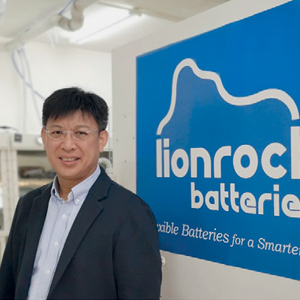THANK YOU FOR SUBSCRIBING
Editor's Pick (1 - 4 of 8)

Impact of Cognitive Automation on Employment
Utpal Chakraborty, Head of Artificial Intelligence, YES BANK LTD., AI Researcher


Utpal Chakraborty, Head of Artificial Intelligence, YES BANK LTD., AI Researcher
As a result, allowing banks to open more and more branches than it had been before leading to an overall increase in the amount of banking jobs.
Is it going to be the same this time?
As per a report published by World Bank, estimates around 65% of Indian service sector jobs are at risk due to automation. And India isn’t alone, in China it would be around 77% and similarly other countries. In Indian IT Service Sector alone, approximately 6.5 lakhs low-skilled positions are in dan-ger.
These experts also forecasted that the new wave of modern automation is “Blind to the Color of your Collar”. That means it's going to affect both Blue as well as White Collar jobs. More and more routine office jobs like customer support and clerical work will be affected the most, but even other semi-skilled and skilled jobs are also not fully safe.
Let’s analyze why this time it’s different than the past false alarms.
Industrial revolution has given the “Mechanical Power” to the machines, the power to do repetitive things in much larger scale, faster and with more efficiently than a normal human can do. IT revolu-tion in 80’s and 90’s has given “Computational Ability” to the machines, ability to process repetitive computational tasks in much faster and efficient way. But this time, Artificial Intelligence has given the “Cognitive Ability” of the machines. Cognitive skills include, ability to learn, analyze, reason and apply those learnings. So, machines and tools we are using are becoming more and more intelligent. Is it going to be a real threat for our employment?
Another group of experts has some different opinion, they argue that in the long run automation ac-tually creates more jobs than what it eliminates. Machines are best at completing repetitive tasks and increase overall productivity which frees up lot of time for the employees to focus on “Intellectually Challenging” and “Creative Works”. And automation and Artificial Intelligence will essentially complement human skills and capabilities rather than completely replacing them. They also believe that it’s going to be an era of “Man & Machine Partnership”. Although, Artificial Intelligence will eliminate or reduce jobs which are repetitive in nature and less intellectually challenging but new forms of employment will take their place.
So, Automation in many cases helps redefining jobs rather than eliminating those entirely. Consider-ing this shift in paradigm, only a Four Years college degree may no longer be sufficient for lifelong employment in the future. Rather it’s going to be Lifelong Learning and acquiring skills throughout life to remain relevant in the industry. Automation is not about altogether replacing the human element, but about elevating the role people play and the value they bring to their job roles. While there are some strategic challenges that automation may bring with itself, it has become a necessity for almost all organizations today and we need to also consider the merits it will have on the organization.












